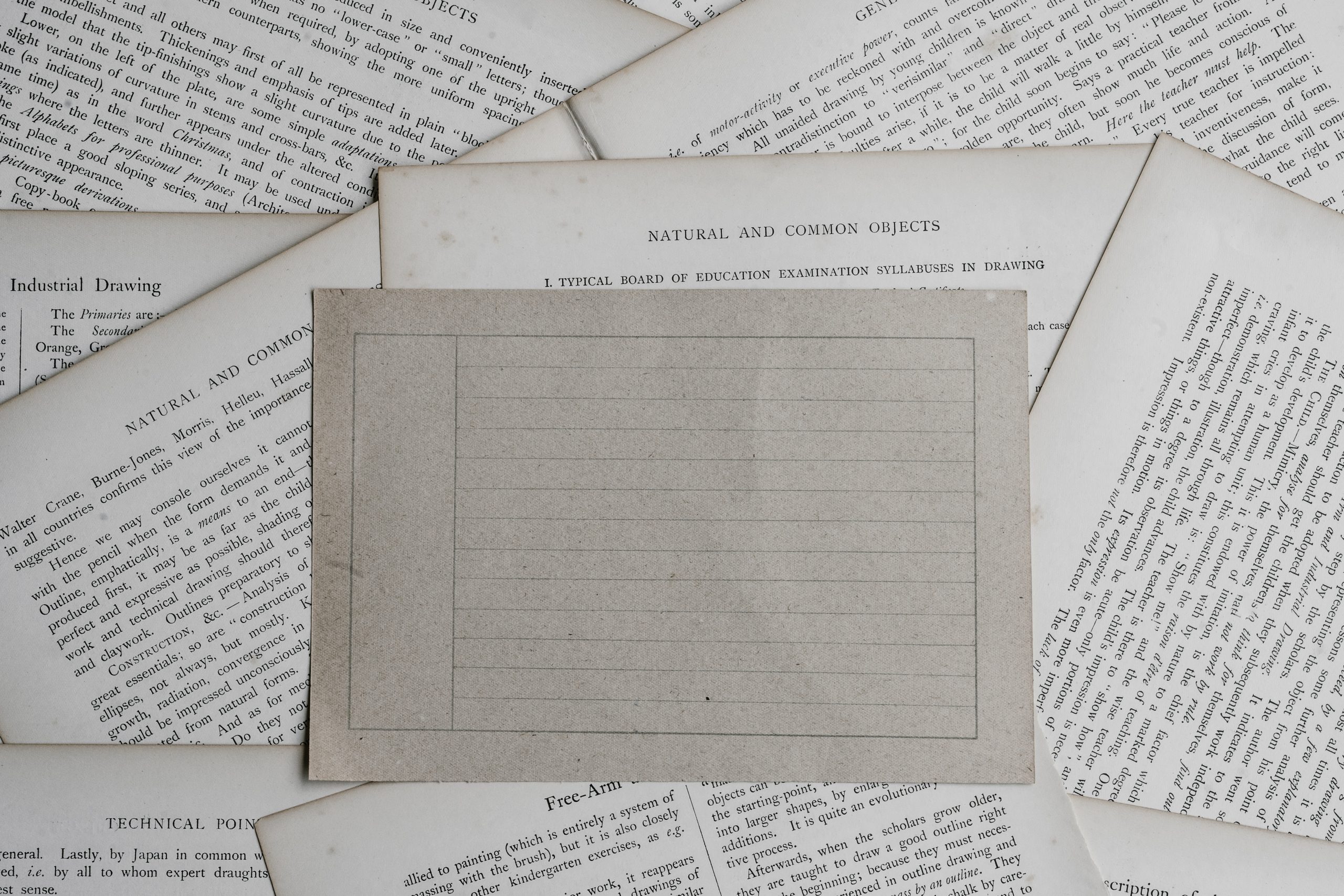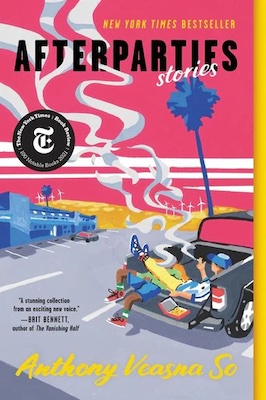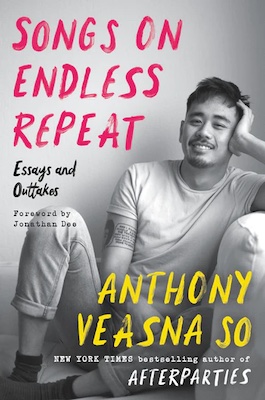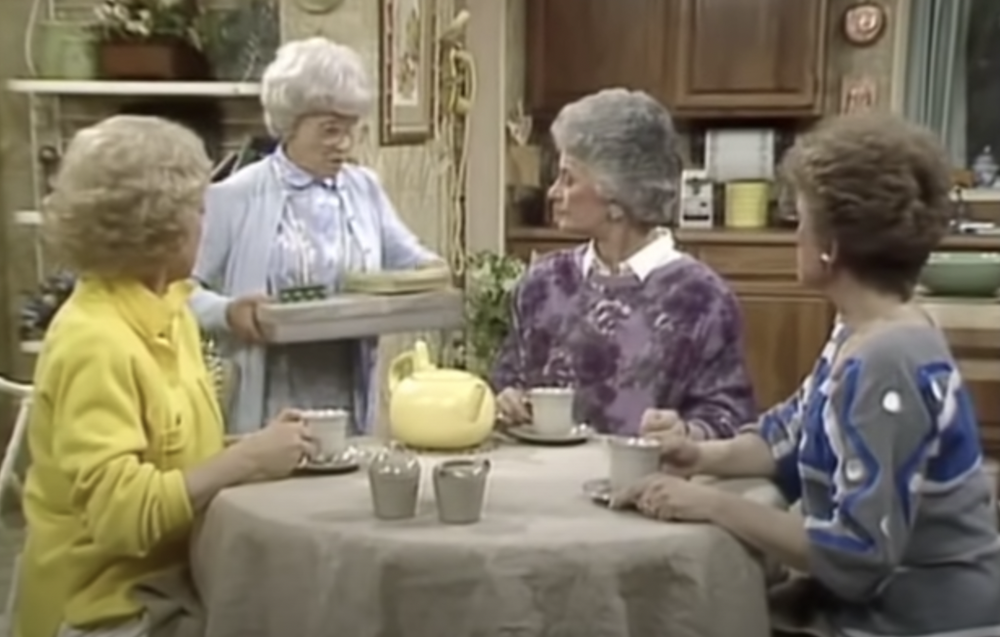Books & Culture
How Anthony Veasna So’s Unfinished Novel “Straight Thru Cambotown” Became a Collection
So's writing is boisterously funny sparklingly real, and spectacularly alive

In the six years since I began writing the Unfinished Business column here at Electric Literature, I’ve explored the incomplete works of fifteen authors, but these have, until now, always been novels lost decades ago—some over a century gone. That gulf of time tends to soften the loss of the author themselves. While I might find it sad that F. Scott Fitzgerald died at the age of 44, the fact that his fatal heart attack occurred well before I was born tends to take some of the sting out of it.
But this is not the case with writer Anthony Veasna So, who died in December of 2020, from an accidental drug overdose when he was only 28 years old. Here, the sting is never far off.
So passed nine months before his first book, Afterparties, would be published. That book would go on to win the NBCC John Leonard Prize for a debut novel and the Ferro Grumley Award for LGBTQ fiction and receive wide acclaim from critics and readers around the world. While some of the stories inside Afterparties had been published previously, such as “Three Women of Chuck’s Donuts” and “Superking Son Scores Again,” most readers were already encountering So’s incredible voice for the first time after he was already gone.
This is especially jarring because So’s writing is so particularly alive, so boisterously funny, so sparklingly real, and so sharply contemporaneous—there’s nothing that feels posthumous about his work. It insists that So is very much here, and very much alive. Only when you come to the end of the last story in Afterparties is it crushing to realize there will be no more.
Except, there is more—at least a little.
This month, Ecco Books is publishing a second book of So’s, Songs on Endless Repeat, a collection of his essays and “outtakes.”
I’d be remiss if I didn’t begin by saying that the essays are their own delight: So’s pop cultural criticism of Crazy Rich Asians and Queer Eye for the Straight Guy come together with deeper, personal memoir pieces about his father’s life as a landlord and the loss of a dear friend to suicide. According to editor Helen Atsma at Ecco books, it had always been So’s goal to publish a book of essays, and his eye had been on doing so after he finished his novel.
His novel, you say?
Indeed, the “outtakes” mentioned earlier are not fragments or drafts of other short stories, but actually eight linked pieces of So’s unfinished novel, Straight Thru Cambotown.
So’s writing is so particularly alive, so boisterously funny, so sparklingly real.
In the foreword, author Jonathan Dee, who served as So’s advisor at Syracuse University’s MFA program, writes beautifully about what it was like to work with So on some of these pieces of Cambotown, which formed the writer’s graduate thesis, submitted only about nine months before his death.
In emails to Dee, So described the book he envisioned as being stylistically and structurally inspired by “Helen Dewitt’s The Last Samurai, Gabriel Garcia Márquez’s One Hundred Years of Solitude, and John Kennedy Toole’s A Confederacy of Dunces.” He wrote that these three were the books he kept coming back to for inspiration as he wrote.
As Dee explains, this high bar that he “cheerfully set for himself” was typical of So. He wonders if, at the time So emailed with this ambitious plan, a single word of the novel had even been written.
But then So wrote—with all the “deceptively casual, humor-cloaked command” that Dee and others at Syracuse had come to admire. As Dee notes, the pieces of the novel that we have are incomplete but never rough. So was a “perfectionist about his writing—not in the self-paralyzing way some writers can be, but just made restless by the idea that something good could almost always be made better.” Knowing that the pieces in Songs on Endless Repeat would have likely undergone extensive revisions still, it is only more remarkable how strong they are.
Dee mentioned that it contains parts of the novel there that he’d never seen before, seemingly newly penned since their work on his thesis had concluded.
In the eight pieces of Straight Thru Cambotown that are included in the collection, readers will get some sense of how So intended to triangulate between DeWitt, Márquez, and Toole, and how the novel would continue the project he began in his short stories, to as one reviewer put it in the LA Times, “immortalize Cambodian California.”
This is a worthy goal, a “hole” that So intended to fill, according to Dee. But So’s work, and Cambotown in particular, doesn’t feel like an act of preservation so much as an invitation (at times a demand) to immerse yourself in the world he loved. If that immortalizes it, in the process, then so much the better.
In an opening section, “We Are All the Same Here, Us Cambos” So writes in a lush first-person plural, present tense. “Just look around and listen to the talk. Him, her, them. Those fools over there blasting Tupac like they actually get it, because in a way, beneath the yellow-brown-light-dark surface of their skin, they do.”
So’s work, and Cambotown in particular, doesn’t feel like an act of preservation so much as an invitation.
Verbally, So soars around Cambotown, hovering over the Mings and Bas and Mais and Pous and Gongs, “Heineken for the humble; Hennesey for the ballers.” He wants to distinguish them from other Asian cultures “two thousand miles away from Cambodia” (look at a map, he urges) even as he outlines what lumps all “Cambos” together: “In Cambotown, we are all the same—same stories, same history. Or lack thereof.” The awful bonds of displacement, and of having descended from the survivors of the genocidal Khmer Rouge regime, are for his generation, badly tangled up with the false promises of the American Dream. He concludes, “That’s why we’ll never leave this place—not truly. […] We’re with you, have always been so. Let’s be messed up Cambos together.”
So addresses the audience in other places in the other fragments of Cambotown, but more rarely, making way for highly specific third-person portraiture of his characters. We settle into the year 2014, a decade after a financial crisis that lingers on in this corner of the world. So introduces a central cast of characters, described in So’s obituary as “three Khmer-American cousins—a pansexual rapper, a comedian philosopher and a hotheaded illustrator.”
These cousins are bound together in their grief over the death of their aunt, Peou. In a fragment named “Peou and her Kmouys,” So describes the legendary Peou, a mathematical prodigy whose skills, others imagined, would have made her a great businesswoman, or possibly a winning contestant on The Price is Right. Her sudden death in a fatal car crash rocks the community and brings her “kmouys” together.
The “comedian-philosopher” is a nephew named Darren, who picks up the next section, set three days after Peou’s crash. At Peou’s funeral he shrewdly observes the art on the walls, the silly minutiae of the ceremony. “There’s a joke in this,” he thinks to himself, as he takes it all in.
Darren’s brother Vinny is “the first Cambo rapper to break into the hip-hop scene.” (One of Vinny’s songs, “Sachkrok Thom” is a rap ballad to Asian dicks, capable of curing all the world’s ills—if only the world would stop marginalizing them.) He is irreverent and headstrong, a fine contrast to the cerebral Danny, and the two read like twin sides of the same coin, perhaps of So himself, whose work never stops ricocheting between those qualities.
The third kmouy is niece Molly, who writes Peou’s eulogy while lamenting her own ongoing forced sabbatical back in Cambotown. After having once escaped to NYU and a Gallatin School bachelor’s degree in “Illustrating the Political Self” that “totally kicked her ass,” she got laid off from the non-profit where she’d worked and sent home saddled with $200k in student loans. Molly is wearier, angrier (justifiably) and sees things a bit more clearly than Darren or Vinny do—a third side of So’s personality that readers will find underlying the essays in the same collection.
The two read like twin sides of the same coin, perhaps of So himself, whose work never stops ricocheting between those qualities.
Later sections, like “The Roses” take us back into Peou’s life, and others go forward to Peou’s funeral and the weeks beyond. Between the eight sections we only get about 130 pages of Cambotown, but it feels like much more. (When I compare it to something like Fitzgerald’s The Love of the Last Tycoon, which was cut off around a similar length, Cambotown feels both technically stronger and far fuller.)
So’s characters crackle with life, humor, pathos, fury, and desperate dreams. Their struggles are generational, historical, local—epic and personal. What we get in 130 pages is so much more than simply track being laid for what never was written. These chapters are full and satisfying, a whole world unto themselves rather than any kind of mere roadmap.
Still, it cannot be denied that it comes to an end that is painfully premature, with incredible potential energy that is still not yet kineticized.
Because So guides our imagination so skillfully towards the future, when the past catches up to us at the end of the final fragment, that loss crashes over us like a tidal wave—maybe not so unlike the way it crashes onto his characters, and onto everyone in Cambotown. It resonates deeply that Peou’s own funeral, and absence, is at the center of this novel, and that the incompleteness it brings cuts through the lives of Daniel, Vincent, and Molly.
You want there to be more, because you want to know that they’ll be OK—what else can you say about the experience of reading a truly great novel but that?
So’s literary agent, Rob McQuilkin recalled how Mark Krotov described the day he first met Anthony at the offices of n+1, where he “came in off the street” and immediately projected the warmth and irreverence found in his fiction. Krotov placed his story “Superking Son Scores Again” at the magazine, a bombastic tale of tough Cambo boys who work out their aggressions through harrowing games of badminton. With an intensely sincere absurdity, the story charmed McQuilkin as much as Anthony himself, and they began working together on the collection of stories that would soon become Afterparties.
It sold to Ecco Books as part of a two-book deal, “heavily tilted” towards the still emerging Straight Thru Cambotown. “At that point Anthony had maybe fifty pages of it written,” McQuilkin recalled. “A couple of chapters and a memo with his intentions for the rest.” The story collection came together rapidly and was, he recalled, a very “light lift” editorially speaking, meaning that the work was already very polished as it went to Ecco.
So’s editor, Helen Atsma, confirmed that very little work had to be done on Afterparties beyond settling on the best ordering of the pieces in it. And yet, So’s instincts as a “hefty reviser” were not settled. Even the story “Three Women of Chuck’s Donuts,” which had already been through extensive editing before publication in the New Yorker, seemed to So in need of another look. Dee recalled how hard So had worked on the piece even before that. “I can’t tell you how many versions of ‘Three Women of Chuck’s Donuts’ I read,” but also that So was never “the type of student who would email something and then email again six hours later with a different version of it.” If So was feeling anxious, Dee said, it was only because of his correct perception “that the stakes were now higher.”
Atsma remembers him as “one of those writers for whom the finished line is hard to accept,” but feels that So’s perfectionism was evidence of how deeply he “loved tinkering at the word level.”
But as the publication process went on, McQuilkin said, Anthony had frantic periods, driven by his own perfectionism, trying to make big changes even as the book headed into production. Anthony was having a hard time during the early months of COVID. Even as his own star was rising rapidly, he was mourning the recent suicide of a dear friend and classmate at Syracuse. The essay So wrote about his friend, originally titled “Songs on Endless Repeat” was later published at n+1 again as “Baby, Yeah” (the name of the Pavement song that he and his friend listened to over and over) and that piece now concludes the collection.
So’s plan, McQuilkin explained, was to get back to work on Cambotown in the new year, once Afterparties was finally set. After So’s overdose that December, McQuilkin said that it took him a long time to finally sit down and go through the work that So had left behind before he passed. There was, understandably, the obstacle of his own grief over the loss of So, but also the significant challenge of dealing with these partial materials all alone.
“Usually there’s this dialogue with the writer,” McQuilkin explained, “instead of me just talking to myself.”
He found significant, new pieces of Cambotown in the papers, along with So’s notes and other writings, enough to begin working on a sampling of the parts that felt the most polished. He estimates that he and Atsma were able to use about two-thirds of what So left behind to form the eight sections now in Songs On Endless Repeat. These were “not remotely ready, in a finished sense,” he felt, but set amongst the essays So had written, there was new “value in the refractions between them” that came out.
“We wanted to touch as little as we could,” Atsma said. Though it was a “minimal edit” she said that she “never felt the weight more,” in knowing the importance of sharing his final work with readers. “It didn’t feel lesser than to me,” she recalled, “If they had, we would never have published them.”
Storytelling persists because our time alive is always too short.
In the end, McQuilkin thinks that the 130 pages of Cambotown might represent about a quarter to a third of the ambitious plans So had for the novel, and, of course, there’s no telling how much of these sections would have endured to the final manuscript, especially as So’s keen, perfectionist eye went through them in future drafts.
How do we face trauma with humor? This is one of the subjects that kmouy Darren says he wants to write his philosophical treatise on. Cambodians love to laugh, he points out to Vinny, as they mill about at Peou’s funeral. Sometimes that’s a reaction to the absurd horrors of the world and of history, but sometimes it’s just for the love of laughing. Vinny, characteristically, cracks a joke back, accusing his brother of selling out, his over-academic analysis is just about “following the money.”
There are themes, in So’s work, McQuilkin said, of reincarnation, and of all the repetitions in all the minutiae of every human life. Storytelling persists because our time alive is always too short, whether it ends after twenty-eight years or a hundred. What we make, and leave behind, at least can always be started over, read again, played on loop.
In the foreword to Songs on Endless Repeat, Jonathan Dee encourages us not to think of So as just another “promising young writer” as these, to be honest, are “never in short supply.”
If So saw a hole in the world that he intended to fill with his words, then his death inarguably leaves too much of that hole still open. But through the writing collected in this second book, So inched his Californian Cambodian characters not just closer to some kind of immortality, but into the world itself. All of this, carried along in So’s unforgettable voice, leaves us all much fuller than we were before.










